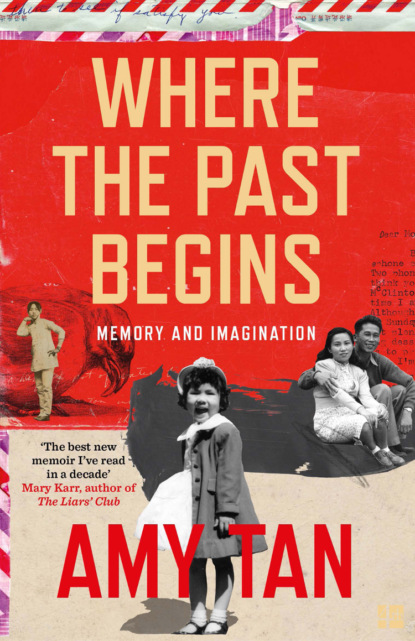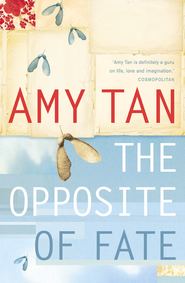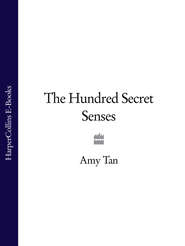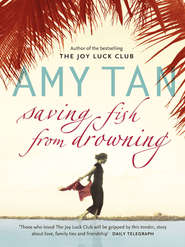По всем вопросам обращайтесь на: info@litportal.ru
(©) 2003-2024.
✖
Where the Past Begins: A Writer’s Memoir
Настройки чтения
Размер шрифта
Высота строк
Поля
2:50 Anna arrives at the tall gates of the village and finds herself in the town square, where streets radiate out like spokes. She does not know which to take. But before she becomes overly distressed, she discovers that her shoes know where to take her. She swiftly walks down one empty street to another. The houses seem empty and lifeless until curtains twitch, revealing the faces of busybodies. When she rounds one corner, she sees three stern-looking women in white caps and aprons scrubbing clothes. They stop their work and conversation to stare at her with a disapproving scowl. She is sure they know why she has come. She straightens her shoulders and walks erectly, casting off their opinions. She tells herself she won’t allow these loveless women to deter her. They envy me, she says to herself. But now her feet have grown heavy. It’s as if she is pushing through knee-high mud. To force herself to continue, she remembers the near-insanity of loneliness. She cannot go back. By remembering her lover’s face, she will find determination. She summons up the memory of their meeting, of his eyes locking on hers, making her blind to these women’s taunting faces. But now she cannot remember what color his eyes are. Once again, each step forward is weighted with certain disaster. Why can’t she remember his face—the one that freed her cramped heart to grow with desire? It is still growing right here on this street. It has grown into a heart so bloated with desire it might kill her. She can feel it pushing into her throat, choking her. She is about to turn back when she hears her inner voice ask: What use is self-respect if there is nothing else to live for? She had nearly gone mad with pride and propriety. She might have killed herself if it weren’t for his love. She throws off thoughts of scandal and wraps desire around her like a warm protective cloak. Newly found passion guides her once again, and each step grows lighter. Soon she is at her lover’s door. Her life, at last, is about to change. It is the end of loneliness.
4:05 Anna walks in. The dwelling is humble, the sort of place where a wood carver or young artist might live. She wonders, what does he do? Perhaps he descends from aristocrats who have become impoverished, like her family. [Impoverished daughters of aristocrats are a staple of fairy tales and nineteenth-century novels.] The ceiling is low and the room is small. A table and plank benches are set before a stone fireplace in the middle of the room. At the other end of the room is a narrow cot, where her lover is sleeping, dreaming of his impatience to see her. A square window facing the empty streets throws a slant of light on his face, this handsome youth. His hair is so blond it is nearly white, his face is pale, his eyelids and nostrils are a translucent pink, his nose is long, and his chin is small. It is obvious he is an aristocrat, a Russian princeling, unaccustomed to work, with a mind fit for noble purpose. She is eager to see the color of his eyes again.
She throws off her cloak and warms herself by the fire. The glow from the hearth makes the entire room rosy. In the past, she never gave a thought to her appearance. But in this soft light, she knows she is radiantly beautiful. She is about to call to him when he awakens and rushes over to embrace her. His possessive gaze and caress remove all doubts that she has made the right decision in following desire. He has healed her, and only then does she realize she has been ill. He has warmed her, and only then does she realize her bones have been cold. She sees in his eyes that she truly is beautiful. She has astonished him. In the flickering light, his eyes appear to be gray, then pale blue, turquoise, ice blue, and silver. He leads her to his bed, a low cot covered with a blanket of rabbit skins. As soon as she lies down, she casts off shyness and her clothes immediately follow. No one has ever touched her skin. His hands know this. They murmur and whisper nonsensical words. She cries, knowing his whispers are about her, that he is telling her about the dimensions of his love. She cannot make out exactly what he is saying and will have to ask him to repeat it later—although perhaps she already knows. After all, their thoughts and feelings are identical. The exquisite sensations of their bodies are identical. She exults aloud: These moments together have already been enough for a lifetime of dreaming.
As if her thoughts had been an incantation, the spell is broken. Their time together is over. [Shades of Cinderella, the plot driven by a mindless keeper of time.] He looks at her sadly. He seems to be telling her with his eyes. Time still divides us, but now we have eternity. They unwrap arms and legs, and from one body they are again two. She is instantly cold. He bids farewell, and when she steps out, she sees that it is early morning. The night passed as if it had been only a few moments before falling asleep.
6:17 Anna walks home, light-headed, still caught in the dream. The old ache of loneliness is gone. She can hardly remember how she once felt. She has a destination now, a reason to live. When she reaches home, she sees how dingy the rooms are, how cavernous and yet constricted the place feels with its small chambers and long hallways. How had she been able to bear it for so long? She wants to go to him this instant and tell him what she has suffered and what he has changed. Why did she leave him in the first place? She cannot recall his saying it was time for her to go, not in words. Perhaps he had wanted her to stay and was wounded in thinking she had made the decision to leave him. She should return to him now. But then she remembers his shuddering groan. He believed they should savor desire and not be consumed by it all at once. He is right. She will wait and come to him when he cannot bear to be without her, when he, too, feels life is meaningless without desire. Warmth will always be at the other end of the road and she now knows how to reach it.
6:55 The simple diatonic melody begins. Anna is once more on her way to her lover. She looks older. It is evident that years have passed. Her step is not quite as lively. The incline feels steeper. This is simply a journey to get to where she needs to be. It starts to rain and the road soon becomes muddy. She slips several times. She considers whether to turn back. She still desires him, but when she returned home yesterday, she wondered why desire was still there when it should have been fulfilled long ago. Her mind holds so many worries it is hard to think clearly about any of them. She does not know his name. He does not know hers. She had reasoned that it did not matter because they knew each other in more important ways. But how? She never asked him. She never asked that of herself. They have spoken only in grunts and gasps, the language of desire.
A wind comes up and rain beats faster and washes over Anna’s face like a waterfall, making it difficult to see. She is frightened. She cannot go any farther. In the distance she sees a hunched figure coming from the opposite direction. She soon realizes it is an old woman without the cover of a cloak. The woman’s unbound hair streams down her face like long moss. Her once fine dress is soiled, ripped at the armholes. The hem is shredded. She is a wretch of misfortune, Anna thinks, the daughter of a respected family who would now pull up her skirts for the promise of a penny. The old woman laughs, as if she had heard Anna’s unspoken insult. She shakes her head and throws Anna a pitying look. Anna is furious that this lowly harlot would pity her. A moment later, she is startled to see that the woman, although haggard, is not old at all. She could be her age, and in fact, they look so much alike they could have been twins. They have the same long dark hair, wide-set gray eyes, and a mole on the right cheek. Even the dresses would be identical if the whore’s were not dirty and hers were not clean. When she looks down at her dress, she sees for the first time a black oily spot, then another and another. She instantly feels cold, so brittle with cold her spine might snap. The beggar woman does not exist, she tells herself. It is worse. She is the malevolent twin of her imagination who has been waiting to be recognized. Anna tries to calculate how many years have passed since she began these repetitious journeys to her lover’s bed. How many mornings did she rise and leave the narrow cot with him still dozing? It must be thousands. Her skin must be worn thin from so many rubbings. She is afraid to look. Over the years, she refused to let questions about him enter into her mind. Yet she still felt tormented by small doubts: that he did not love her as much. Or that he did not even exist. The first time she had that thought, she immediately turned around on the road and rushed back to the village. On her way there, she noticed that the road had grown longer and steeper. When she reached his home, she peered through the window and saw him sleeping as usual. She was tempted to rap the window and see his delight that she had returned so soon. But then, as usual, she thought it was best to not interrupt his dreams of desire for her. She simply returned home.
But now, since meeting the wretch on the road, she cannot stop the worries. Does he still desire her? Is his desire the same as what he had for the harlot? Was that why the woman gave her a pitying look? What a brainless fool she has been. She should have banged on the window and broken the pane, then reached in and shaken him to make him speak. Does he, too, believe desire for her is life’s meaning? Who else has he desired? What does he do besides satisfy himself with her body? Her malevolent twin is delighted she has doubts. His incomprehensible groans and grunts were not promises of love, she tells Anna. They were lusty profanity in a foreign language. You saw him only between the hours of dusk and dawn. You had eyes for only what lay at the end of the road and not what surrounds you. Anna looks around her. The woman is not there. Who is speaking to her? She sees the trees around her are dead. How long have they been that way? She sees them as an omen. Love is withering, not just his, but hers. Soon she, too, will resemble the stiff dead trees she passes, their leafless branches clawing upward for more sky. [Shades of anthropomorphic trees in The Wizard of Oz.]
She turns around to go home. But she cannot. The more she resists, the stronger the wind blows against her.
10:30 In the past, she could do nothing but succumb to the delusion that he loved her. There is no delusion now. Knowledge is a murderer. She knows now she will not increase the small amount of happiness she receives from her lover. It does not accumulate but disintegrates as soon as she is on the road walking home. Her love for him will always remain gnawing desire. The old argument arises: if she refuses it, she will have nothing. She will be empty. She struggles to retain the vaporous illusion of love. No longer able to decide, she lies on the road and allows herself to be buffeted by the storm. She does not protect herself from the wind. She has already given up self-will. She will soon become a ghost of desire riding a beggar’s back. Why not end it now—but which, her life or her desire?
12:45 The storm ends. It has purged doubt, and she is grateful she has survived. She finally understands that her resistance to desire had only made desire stronger. Each time she had thought of turning back, desire surged and became fear, a madness that clawed at her until she pushed through her lover’s door again and lay on his bed. In the morning, he had let her out onto the streets where the laundry women could see her. She would then take the road home, carrying her useless satchel of self-knowledge. She had emptied her mind for him. She had welcomed him to use her body as a receptacle. She had asked for nothing. She would have done that until she disappeared—body, mind, and senses. Holding on to this terrible realization, she now turns around to go home. She pushes against strong winds. With each step, the road behind disappears.
13:17 Anna is home. The rain is nearly over. She finds calm for the first time being alone in her house. The arguments in her head are gone. In the past, she would have been frightened by quiet and loneliness. But now she knows she can leave her house whenever she wants. She does not need a destination based on desire. She walks outside and for the first time, she sees beauty in the landscape, in the slope of a small hill, in an enormous tree whose canopy is lit so brightly by the sun it looks like a veil of gold. This tree has always been there, and she now recognizes it as a place where she once sought refuge in a thunderstorm. She runs to the tree and climbs up to its crook. The leaves brush her skin. She sees the bright blue sky through the branches. There are so many ways to see sky. She spots a fat blue bird that sings to her. There are so many ways to see blue. Loveliness is unexpected. It comes without being asked for. How had she not known this? She looks out and sees the spire of the church of the village, the dark clouds moving toward it. And then the spire punctures the clouds and dark rain pours.
15:50 The simple diatonic melody returns. Anna is walking along the road again. Her pace is steady. She is confident. She will see him, her delusion of desire. For so many years, she had seen herself transformed in his lustful gaze. She had believed that the passion in his eyes had emanated from him, when in reality it had simply been her own reflection and longing. Without her desire, he will be empty. Without her passion, he does not exist. Without her shame, the scowling women become myth. They were all part of her delusion to make desire appear more important than it was. And with that realization, the road before her vanishes.
That is the end of the first movement. There are two more movements. And that is good, because the story of this woman does continue beyond a vanished road.
For the last thirty years, I’ve harbored a secret desire to compose music. I’ve had dreams that I already have. I hear it, my music, and am composing simultaneously with it being played by a full orchestra. The music is romantic in form. The song is lyrical. The strings play, the reed instruments come in, then the piano solo. The emotions are deep and wide. I know the themes of revelation. I see the partially written score before me, pages three feet wide and four feet tall. I am writing the score for all the instruments, in bars stacked atop each other. I sweep my hand over the paper and the notes appear. But then I wake and realize there is no score and that I lack the skills to transcribe even a note of what I heard. Yet I still feel a residual sense of wonder that the music came to me so easily. I’m frustrated that I can do nothing to retain it. And perhaps that is because there was nothing to retain.
The dreams of music are like the recurring dreams of a secret ballroom—an enormous unused room always found at the back of a house, past the dining room, or through a door in the laundry room. In the dream, I always wonder why I never noticed the room before. It could have solved my need for additional space for books or for a larger study or a painting studio. In one version of the dream, the ballroom is at the back of a third-floor Victorian apartment where I lived in the 1970s. In another, it is accessed via a cave in the yard of a ramshackle cottage where I lived when I was a student at UC Berkeley. There are three more dream houses, all different, but the ballroom is the same. It was once grand but now has plaster debris on the floor and chipped French blue paint on the walls, all easily fixed. Sometimes there is a smaller room beyond the ballroom. It is a mess, filled with construction materials, mops, buckets, saws, hammers, and a big concrete washbasin holding half-filled cans of paint. These are the materials I have to use to repair the ballroom. It is an enormous task. In some dreams, I am able to clean up the mess in a day and hold a dinner party at night. In other dreams, I decide to put off fixing up the room. I sweep the floor, then leave the house and discover I actually live in another house and the place I just left is a house I lived in twenty years ago and forgot I still owned. I’m flabbergasted. How could I have forgotten I own a house? I wonder how much it would fetch on the real estate market today.
These are the words I can use when I wake up to retain memory of the ballroom. I cannot use words to retain the music once I wake up. I don’t have the musical ability to take it with me. It lives in its own language—all except one tendril of music, which I managed to capture. As soon as I woke, I used my cell phone to record myself humming part of the dream melody before it disappeared. I played it back. It was a somber tune, almost baroque in quality. When I listened to it a month later, it did not seem like anything I would have devised. I concluded that the tune I hummed was vaguely familiar because it was a song from my past, a hymn from childhood, or any of the thousands of songs I’ve heard at symphonies or on the radio. It could be a passage from a soundtrack. Or perhaps it was a fugitive melody from someone else’s dream.
I have not given up on the idea that the music I hear in dreams can come alive in the waking world. I have had other things come to me in dreams. Cats that dip their tails in inkwells and write as instructed until one kitten has an accident. That became the children’s book Sagwa,the Chinese Siamese Cat. I dreamed of a full moon party on a boat, during which a little girl falls into the water and becomes lost. When she is found, she is a different person. That became the children’s book The Moon Lady. I dreamed the idea for making the narrator of a novel the ghost of my mother, who had just died. She suggested in the dream that she could serve as the omniscient guide to tourists on holiday in Myanmar, and per her wish, she became the voice in the novel Saving Fish from Drowning. All sorts of solutions to small plot problems have come through somnolent delivery. The best dream arrived two years ago: it was an entire novel—the setting, the narrator, other characters, the situation that leads to the narrative, accidents and bad timing, the other characters and their roles, a backstory in China, a family tree, the complications, even small scenes. When I woke, I wondered if it was the gibberish that is understandable only in dream logic. While it was still in my head, I wrote it down, as much as I could remember. Ten pages. Then I read what I had written and it all made sense.
The actual writing will still be daunting. It gets harder with each novel. I will have to relearn my craft, overcome the same doubts, untangle the narrative from long detours, or take whichever detour is the story I should tell. I will also find the right music to accompany the scenes as I write them. I am thinking it might even be some of the music that I have yet to dream. It doesn’t have to be a full orchestral piece—let us not be delusional. A simple motif would be enough, just four measures of it spun out into a melody that I could play on the piano in the clear voice of the right hand. It would require only a modest dream to deliver a motif barely hanging by a thread of intuition. I will hum it and capture it with a recorder, then transcribe the notes I hear onto a sheet of music. I will play freely with the motif, trying out variations, then transcribing five, the most emotionally resonant—onto sheet music. I will play that melodic motif a hundred times until it is engrained as emotional memory, as part of me. I will play that motif a thousand times for the novel that I have already dreamed I would write.
[ QUIRK ] (#ulink_89e735f8-db19-5539-882a-5149c88b3d20)
Souvenir from a Dream (#ulink_89e735f8-db19-5539-882a-5149c88b3d20)
SAN FRANCISCO, JANUARY 8, 2002. In my dream about a former era, I was writing lyrics to a song, and when I woke, the lyrics were still in my mind. So I wrote them down. It was as if I had stepped out of a dream that took place in the 1920s and came back with a souvenir. Do these lyrics actually exist? Or did I truly dream them up? Maybe next: a flapper dress.
Two can can-can
—Toucan can’t.
Two can can-can
—Toucan can’t.
If I can can-can
You can can-can
Then two can can-can.
Shall we dance?
Two lips will kiss.
Tulips wilt
Two lips will kiss.
Tulips wilt.
If I may kiss you?
No, you can’t kiss me.
Two lips will kiss.
Two lips won’t.
Let’s be a twosome.
No, that’s too soon.
Let’s be a twosome.
No, that’s too soon.
If I take one step
You can take one step
We two can two-step
Right up the church steps.
CHAPTER THREE (#ulink_bd9c48d2-59d9-5bc2-b613-d2a248dd930a)
HIDDEN GENIUS (#ulink_bd9c48d2-59d9-5bc2-b613-d2a248dd930a)
According to my parents, you could be a genius and not even know it if you were lazy. You had to work hard and push yourself to do what was difficult and that’s how you would know how strong your brain was. If you did only what was easy, you would be like everyone else. I had the impression as a child that my lazy brain was like a flabby muscle. If physical exercise could turn skinny weaklings into musclemen, mental exercise could do the same for my brain. And then, if I was indeed a genius, everyone would know this and I would be called a prodigy. “If Peter can do it,” they would say, “you can do it.”
Peter was eighteen months older than I was and had been born a genius, destined to do great things in life. I heard my parents say that to me, our relatives, and to family friends. Whether he truly was a genius, I can’t say, since he died when he was sixteen, too young to fulfill the promise foretold. Nonetheless, I don’t remember a time in childhood when I didn’t believe that my parents’ boasts about him were based on fact. At the end of the first grade, he was promoted to the third, and, according to my parents, he was still more advanced than the other children. He learned everything quickly and had great powers of concentration. He devoted many days toward making a map of South America using different kinds of dried beans—Argentina was black-eyed peas, Brazil was lentils, Chile was yellow split peas—so many countries, so many beans. My parents displayed his South America on the mantels of our different homes, and only now do I wonder what became of that centerpiece of parental pride.










